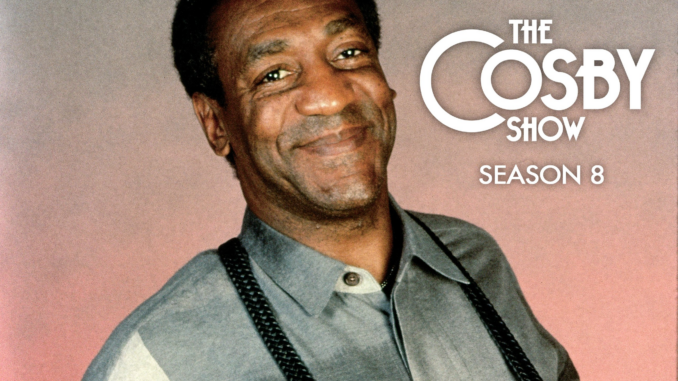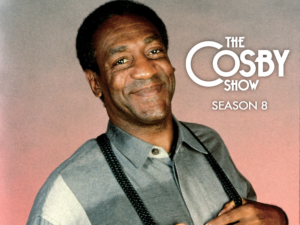
The Cosby Show revolutionized television, offering a unique and progressive portrayal of African-American life and culture. At the heart of its success was Bill Cosby, whose involvement with the show went far beyond acting. As the creator, producer, and star of the series, Cosby was the mastermind behind one of the most iconic TV shows in history. But while Cosby’s talents as a performer are well-known, there’s a deeper, far more complex truth behind his role in The Cosby Show that many fans still don’t know. This article reveals the shocking secrets behind Cosby’s involvement, how he shaped the series, and the unexpected challenges the show faced due to his larger-than-life presence.
1. How Bill Cosby Changed American Television Forever
Bill Cosby’s influence on television cannot be overstated. When The Cosby Show debuted in 1984, it was groundbreaking in so many ways, primarily for the way it depicted an African-American family. Cosby’s role as Dr. Cliff Huxtable was unlike anything audiences had seen before. The Huxtables were an affluent, educated, and loving family—a far cry from the stereotypical portrayals of Black families in the media at the time. Cosby didn’t just play the character; he created it, using his own life experiences to shape the show’s narrative. His deep involvement in the writing and creation of The Cosby Show meant that it was not only about comedy—it was a platform for Cosby to communicate his vision for how Black success and family life should be represented on screen.
Cosby’s role was more than just a sitcom star—he was the architect of a cultural revolution. Through his character, he showed that Black families could be doctors, lawyers, and professionals, living in homes filled with love, humor, and respect. This was a sharp contrast to the media’s typical portrayal of Black families as struggling or downtrodden. Cosby’s Huxtables paved the way for future African-American families on TV, including the Fresh Prince of Bel-Air and A Different World—both of which were influenced by The Cosby Show.
2. The Scene That Shocked the Cast and Changed Cosby’s Career
Bill Cosby wasn’t just a figurehead; he was deeply involved in every aspect of the show’s production. His dedication to realism and authenticity in his character went far beyond script readings. In fact, there was one moment on set that left both the cast and the crew stunned, and it significantly impacted Cosby’s career.
In the early days of filming, there was a pivotal scene between Dr. Huxtable and his daughter Denise, played by Lisa Bonet. Cosby made an impromptu decision to change the script, leading to an unexpected, emotionally charged exchange that was not in the original plans. The new dialogue, more raw and vulnerable, created a powerful, emotional moment that was so moving it caught everyone off guard. The chemistry between Cosby and Bonet was so genuine and intense that it left the entire crew speechless. This moment is widely credited with elevating the show from a standard family sitcom to something much deeper.
The impact of that scene was profound not only for the show’s storytelling but also for Cosby’s personal and professional life. He recognized the power of portraying these authentic, emotionally complex father-daughter moments, and it became one of the most beloved dynamics of the series. Cosby’s instinct to let go of a perfect script in favor of something more natural and heartfelt marked a turning point in the show’s evolution. In hindsight, it’s easy to see how this scene was a symbol of how Cosby was willing to push boundaries, challenging not just the audience’s expectations, but even the industry’s norms.
3. The Controversial Decisions That Shaped The Show’s Success
While The Cosby Show became a cultural icon, the path to success was not always smooth. Bill Cosby’s hands-on approach, while effective, often led to tension behind the scenes. One of the most shocking things about Cosby’s influence on the show was his dictatorial style in the writers’ room. Cosby was known for pushing his vision to the limit, often disregarding the suggestions of others if they didn’t align with his creative direction. His drive for perfection created friction at times, but it also led to the show’s distinct voice.
For instance, Cosby was adamant about keeping the show’s humor both accessible and educational, without relying on cheap jokes or gimmicks. He wanted to avoid the typical “family sitcom” format that leaned heavily on slapstick humor or exaggerated family dynamics. Instead, Cosby insisted that The Cosby Show tackle real-life issues such as racism, personal responsibility, and financial literacy—but always with humor and warmth. This approach, though innovative, didn’t always sit well with the network executives, who worried about the show’s “serious” moments taking away from its commercial appeal.
Despite this, Cosby remained steadfast in his creative choices, and in the end, it paid off. The show’s success was due to Cosby’s unwavering commitment to portraying Black excellence in a way that had never been done before. He wasn’t just making a TV show; he was creating a legacy. The Huxtables were not just characters—they were representations of a better, more aspirational vision of African-American life that would influence the culture for decades to come.
4. Cosby’s Legacy: A Double-Edged Sword
In light of the recent controversies surrounding Bill Cosby’s personal life, it’s difficult to separate the man from the legacy he built through The Cosby Show. The show remains a beloved classic, but its legacy is now intertwined with the accusations of sexual assault that have dominated headlines in recent years. For many fans, it’s an uncomfortable situation. How do you reconcile the groundbreaking impact of The Cosby Show with the dark reality of Cosby’s actions off-screen?
There is no easy answer. For some, Cosby’s contributions to the television industry—particularly in shaping how Black families are portrayed on-screen—cannot be dismissed. For others, the shadow cast by the allegations is too overwhelming to separate from his work. As we continue to look back on The Cosby Show, the complexity of its legacy is undeniable. It was both a product of its time and a precursor to the changes in television that followed.

The impact of The Cosby Show is undeniable, and Bill Cosby’s role in shaping that impact cannot be overlooked. While the controversy surrounding Cosby has altered how many view the show, it does not erase the groundbreaking moments that made The Cosby Show a cultural touchstone. Whether or not we can fully separate the man from the legacy he created remains an ongoing conversation—but one thing is for sure: Cosby’s influence on television is irreversible, for better or for worse.
